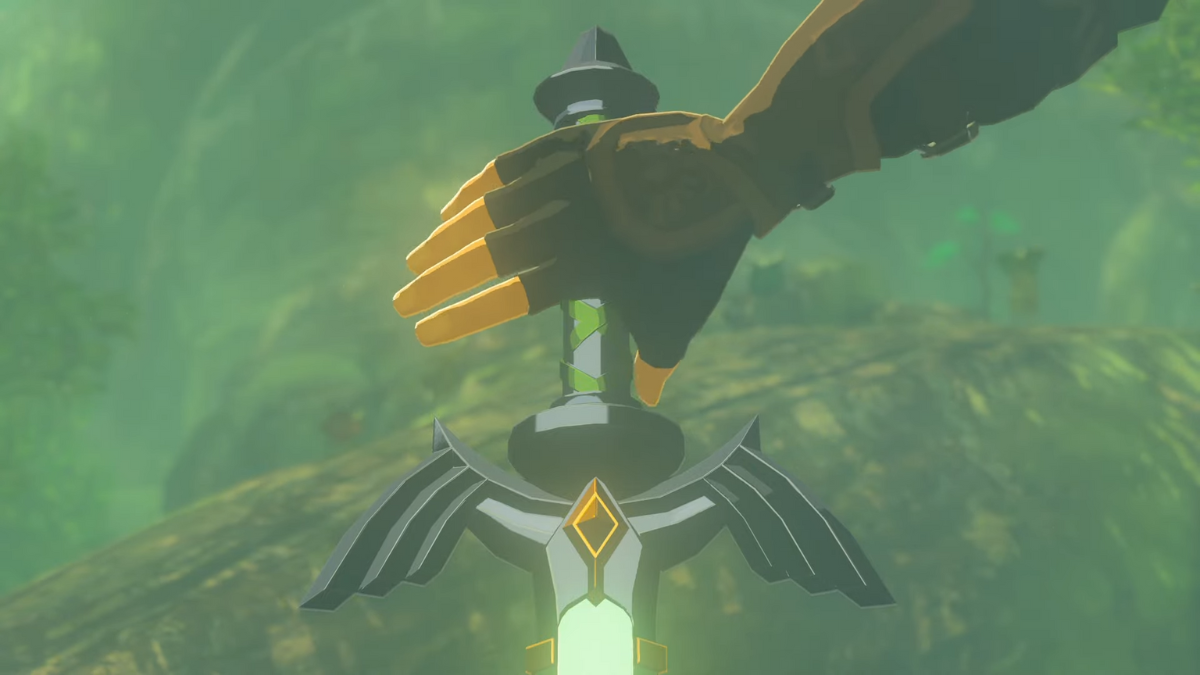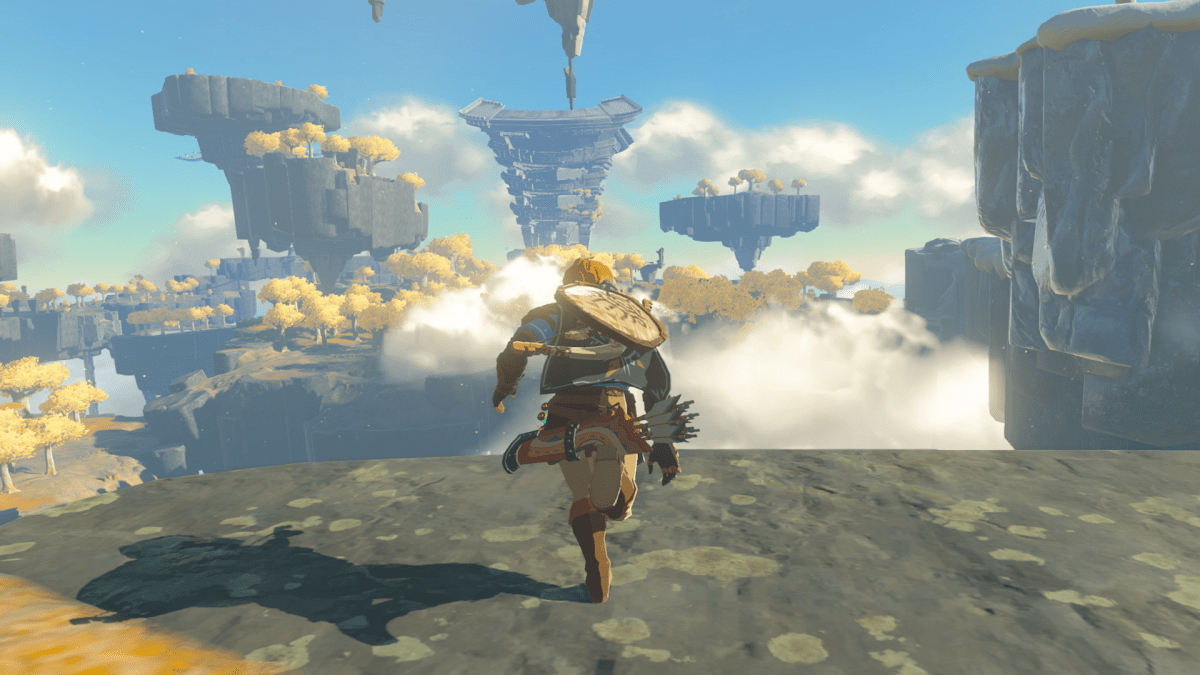It’s Friday, May 12, and while the rest of the world takes to the skies of a newly renovated Hyrule in the blockbuster mega-hit The Legend of Zelda: Tears of the Kingdom, I’m sitting in a café, drinking an iced Matcha latte, contemplating why I don’t feel the need to join them. The Legend of Zelda has been my favorite franchise since childhood; memories of being psychologically scarred by ReDeads in Ocarina of Time and stealing the official Twilight Princess guide to help me through the game’s difficult (but incredible) dungeons sit fondly within my heart. When Breath of the Wild came out in 2017, I pulled an all-nighter playing it alongside my best friend while we both explored the desolate Hyrule on our shiny, new Nintendo Switch consoles. But after putting dozens of hours into the game, I inexplicably stopped playing, only opening the software a spare few times over the next six years.
It’s difficult for me to pin down what exactly happened. Was it exhaustion? A steadily-growing disinterest? The allure of a newer, shinier game? All were equally possible, as long games tire out my focus, and newer experiences — from Super Mario Odyssey to Hollow Knight to Hades — beckoned my attention. Still, the inkling to jump back into Hyrule was rarely indulged — or outright rejected when I would realize (again and again) that I simply forgot how to play the game during my time away. It was difficult to enjoy roaming the rolling hills when monsters could easily ruin my day while I struggled to remember how to fight back.
I thought everything would change when Tears of the Kingdom — originally blatantly called The Sequel to Breath of the Wild, which has a nice ring to it — was announced at E3 2019. The trailer was darker, the world familiar, but transformed. Link had long, luscious hair, and Zelda was rocking a bob-cut. I was ecstatic; however, my BotW cartridge remained untouched in my special collector’s edition Sheikah Slate Switch carrying case. Each new trailer sent shockwaves around the internet, sending Twitter ablaze with theories and hopes and dreams and worries. But all the new information left me cold and bizarrely disinterested. I felt like an outsider, a hellhound watching the party under a pile of clothes in a dark closet. Discontent with simply being labeled a grump, something my friends will often do without hesitation, I turned my analytical skills inward: What in my life was keeping me from jumping with joy?
The most straightforward answer would be that my Switch — my beloved, tempestuous home console love — is showing its advanced age. The left Joy-Con drifts like it’s in a Fast and Furious film, the back has slowly twisted, and the fan has been letting out a death knell for months. Handheld play is not impossible but certainly difficult, as even recalibrating the joystick doesn’t make it stop moving of its own accord, and the whining, wheezing fan sounds like a dying animal got stuck within a jet turbine and refuses to perish peacefully, even when it’s docked. Neither of my alternative consoles — my child, the Xbox Series S, and the new-wave alien device that is the PlayStation 5 — struggle so much to fulfill their intended purpose. It doesn’t help that next-gen speed and specs have made the often shoddy performance of Switch games feel like an affront against nature. I can admit when I am spoiled, and also when I do not have the monetary fluidity to shell out for the gorgeous Zelda-themed OLED Switch. Although, I’ve absolutely thought about it. (I will not be made a sucker for buying a replacement Switch when its successor is just around the corner… right, Nintendo? Right? Please call me.)

Looking past the physical deformities of my console, we enter the ethereal realm of untouchable problems. At the risk of sounding like a brat, I can partially blame my job as a games journalist, which has slowly mutated my genuine passion for games into article fodder. It might be great to write off games as business expenses, but it’s become difficult for me to enjoy things for the sake of enjoyment, rather than mining the experience for some deeper meaning. I mean, heck, I’m even doing that right now for a game I’m unsure of playing — content is life, life is content. That’s not to say there isn’t any joy that can come from playing games anymore, but it’s few and far between, buried deep beneath layers of critical thought and analysis. Subconsciously, it feels like I’ve been protecting my cherished Zelda franchise from the claws of such deep thought. When I think about my baby boy Link, my head goes empty and I can’t string together a coherent sentence.
Alternatively, the franchise’s sheer juggernaut status has made it difficult to feel like any thought is novel and groundbreaking. There are so many incredible pieces about Breath of the Wild and the Zelda series as a whole, so joining any conversation feels daunting and misguided. What can I say that hasn’t already been said (and probably said better) by a dozen other writers?
Unable to find the words, I venture out of my house on the launch day of one of the most anticipated games of the young decade — one of the highest-scoring games of all time — to sit in a café and write about why, beneath every excuse I could give, it scares me. How much I will enjoy the game, how much I will read into its successes and failures, how many pieces I will draft and redraft in my head while searching for that breakthrough article that sparks a conversation — it all frightens me. Everything is different than it was in 2017 — my Switch is ancient, my friend lives in a different state, I’m not in high school, I’m not the same person. I cannot expect Tears of the Kingdom to be the same, either. In fact, I would be disappointed if it was! But still, here I am, sitting in a café, debating whether or not I will buy a game that, deep down inside, I already know I will purchase. It’s not a matter of “why,” but “when.” It’s not a matter of being hyped; it’s a matter of meeting it on my own terms.

